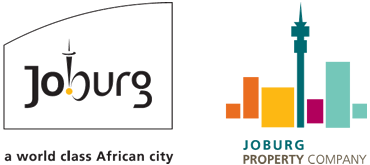Transformation in the property sector, citizens’ residential areas in relation to their work places and property rights were some of the issues delegates discussed at the South African Institute of Black Property Practitioners (SAIBPP) annual convention this week.
The two-day conference from 2 to 3 November 2016 brought together property professionals, business leaders, suppliers and other industry practitioners from the private and public sectors in Woodmead. The delegates exchanged information and discussed critical issues in the property sector.
Joburg Property Company Chief Executive Officer Helen Botes spoke about the role of local government in transforming the sector. She said the fact that it remained 90% white owned more than 20 years after democracy showed that bold and radical action was necessary to drive change.
“Sometimes in local government we’re scared to be bold. Because we know that sometimes when we’re bold … that could be interpreted as corrupt. So you do find that most of us are scared … of being accused of being corrupt because heaven forbid I give Sipho a R4-billion contract. [The perception is that] he must have done something, we must have had coffee … he must have given me a new Merc for me to give him a R4-billion deal,” she said.
Such perceptions needed to change and the public and private sectors had to work together, Botes added.
“We do find that the private sector does not play ball. Local government can provide the opportunities but … government is not the only one that must pave that opportunity.
“We have to change the way we approach this industry and we then have to determine how bold we’re going to be and how radical we’re going to be without fear of being accused of something else. If you believe in what you do, I don’t believe you should be afraid of being accused of corruption … I think you should just push forward,” she said.
Speaking on behalf of the Gauteng government, Health MEC Qedani Mahlangu reminded delegates that South Africa’s constitution was signed 20 years ago in November 1996.
“One of the fundamental clauses in the constitution [was in relation to] property rights. Those of you who followed the discussions during the negotiation process would be aware that one of the major stalemates was about the property clause. Today, 20 years since the constitution was signed, we need to reflect on what is happening in the property space,” she said.
Many noteworthy achievements were shared at this forum, but the most impressive was that South Africa leads the world in setting facilities management (FM) standards. These have been presented three times at international forums and the South African Bureau of Standards is encouraging industry practitioners to give feedback. Comments on the standards may be emailed to dsscomments@sabs.co.za This development is particularly interesting as the US has had FM standards since the 1970s, the UK and Europe since the 1980s and South Africa since the 1990s.
This means that local FM practitioners can continue to do what they are doing but that the standards will guide a systematic approach, said David Khasebe, local convenor of the working group that drew up the best-practice standard and founder of independent consultancy DKMC.
